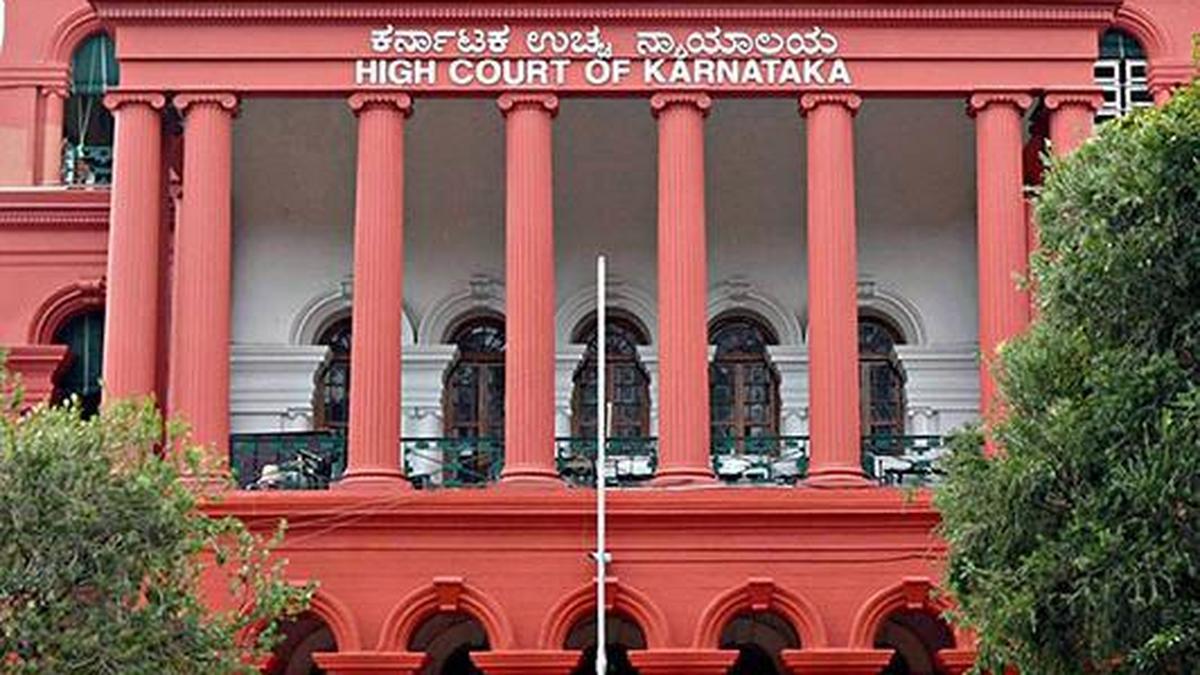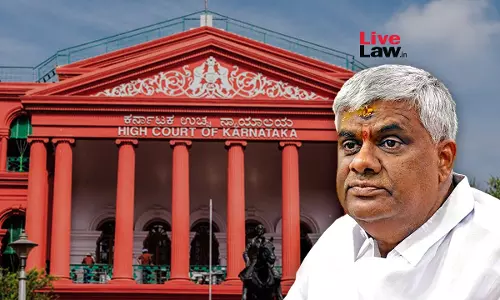The Karnataka High Court has directed the Karnataka State Cricket Association (KSCA) to produce video recordings of the scrutiny process of nomination papers for its upcoming elections. The directive comes amid allegations of procedural irregularities and lack of transparency in handling nominations. The court emphasized that maintaining credibility and fairness in the electoral process is essential to protect the integrity of the state cricket body, which plays a key role in nurturing talent and overseeing cricket activities across Karnataka.
The court’s order was passed in response to a petition filed by one of the aspirants for the KSCA elections, who raised concerns that the scrutiny process was not conducted transparently. The petitioner alleged that certain nomination papers were arbitrarily accepted or rejected without providing proper reasoning or documentation. Highlighting the significance of accountability in the electoral process, the High Court instructed KSCA authorities to submit the complete video evidence of the scrutiny procedure to verify the claims and ensure fair play.
Ensuring Transparency in Electoral Processes
Legal experts said the High Court’s directive marks a significant step toward improving transparency in sports administration. Video recording of the scrutiny process is expected to provide a clear and verifiable account of the evaluation of nomination papers. It will serve as evidence in case of disputes and help prevent potential manipulation or mismanagement. KSCA, which manages cricketing affairs in Karnataka, including domestic tournaments and player development, has faced repeated calls for better governance practices. Ensuring transparency in elections is seen as a crucial first step to restoring public confidence in the body.
Officials from KSCA confirmed that the scrutiny of nomination papers was completed recently and that the recordings were stored for reference. The court has asked the association to produce the footage within a specified timeline, ensuring that all stakeholders have access to objective evidence of the process. Observers noted that this move could set a precedent for other sports associations in the state, urging them to adopt more transparent practices in their internal electoral and administrative procedures.

Allegations and Background of the KSCA Polls
The KSCA elections have drawn attention following multiple allegations from aspirants claiming bias, lack of proper documentation, and irregularities in the nomination process. Some candidates alleged that their nominations were rejected without adequate justification, while others reported discrepancies in the verification of supporting documents. These issues have raised questions about the fairness and credibility of the electoral process, prompting intervention by the judiciary to ensure accountability.
The association’s elections are significant as KSCA oversees cricketing activities in Karnataka, including selection committees, youth development programs, and management of iconic stadiums like M. Chinnaswamy Stadium in Bengaluru. Leadership of the KSCA directly affects domestic cricket administration, talent nurturing, and coordination with the Board of Control for Cricket in India (BCCI). Therefore, ensuring a transparent election process is crucial not only for aspirants but also for the broader cricket ecosystem in the state.
Legal representatives noted that video documentation could also address claims of selective treatment or arbitrary decision-making during the scrutiny of nomination papers. Courts have increasingly emphasized the need for procedural fairness and verifiable records in elections of autonomous bodies, including sports associations. This case reflects the judiciary’s commitment to ensuring that governance in influential institutions adheres to standards of accountability, transparency, and equality./newsfirstprime/media/media_files/2025/11/22/ksca-election-postponed-2025-11-17-15-12-16-2025-11-17-15-19-10-2025-11-22-15-27-44.webp)
/newsfirstprime/media/media_files/2025/11/22/ksca-election-postponed-2025-11-17-15-12-16-2025-11-17-15-19-10-2025-11-22-15-27-44.webp)
Looking Ahead: Implications for KSCA Governance
The Karnataka High Court’s directive has sent a strong message that adherence to transparent procedures is non-negotiable. KSCA authorities now face pressure to not only submit the recordings but also ensure that all future electoral processes are conducted in a fully accountable manner. Observers believe that the scrutiny of the video could potentially lead to further clarifications or adjustments in the election process to maintain credibility.

Stakeholders, including players, aspirants, and cricket enthusiasts, have welcomed the move, viewing it as a positive step toward reforming governance in the association. Transparency in elections is expected to foster trust among members and prevent disputes that could otherwise disrupt cricketing activities in the state. Experts noted that stronger oversight mechanisms, such as live recording of important procedural steps, could become a standard practice for KSCA and other sports bodies in India.
With the scrutiny video now mandated, attention turns to the election process itself. Candidates and observers hope that the court’s involvement will encourage adherence to rules, fairness, and impartiality throughout. The judiciary’s intervention underscores the broader principle that governance in sports and other autonomous institutions must be accountable to members, stakeholders, and the public at large.
Several aspirants for the KSCA elections have welcomed the High Court’s directive, seeing it as a safeguard against arbitrary decision-making. One candidate, who requested anonymity, said that the video footage could clarify why certain nominations were initially rejected and ensure that every application is assessed fairly. Aspirants hope that with judicial oversight, procedural errors or lapses will be corrected promptly, allowing all eligible candidates an equal opportunity to participate in the electoral process.
The directive also raises questions about the association’s internal governance practices. Over the years, KSCA has faced criticism from members and players for lack of transparency in decision-making, particularly in elections and appointments to committees. Critics argue that ensuring documented, verifiable procedures, such as video-recorded scrutiny, could prevent accusations of favoritism and improve trust among stakeholders. Experts believe that the court’s order may set a benchmark for other state sports bodies across India.
KSCA officials have stated that they will fully comply with the court’s order, producing all requested video footage within the stipulated timeframe. They emphasized that the association is committed to maintaining credibility in its elections and will cooperate with legal authorities to resolve any pending disputes. Officers also highlighted that the recordings had been made to ensure internal transparency, but producing them in court reinforces accountability to all stakeholders, including players, officials, and members.
The scrutiny of nomination papers is a critical step in ensuring that candidates meet eligibility requirements. Documentation such as membership validity, fee payments, and compliance with KSCA regulations are assessed during this process. Allegations of selective scrutiny had sparked legal intervention, and producing video recordings aims to provide an indisputable record of every evaluation step. Legal experts say that such measures reduce the scope for contesting results based on procedural irregularities.
Candidates and observers have pointed out that video evidence could also deter future manipulation or bias in elections. By recording each stage of scrutiny, from document verification to acceptance or rejection of nominations, KSCA can demonstrate that decisions were made objectively. Experts highlight that technology-backed transparency is increasingly important in governance of autonomous bodies, helping build confidence among stakeholders and the public.
Historically, KSCA elections have been contentious, with disputes occasionally escalating to legal battles. Allegations have ranged from partiality in nominations to opaque voting procedures. The High Court’s intervention is viewed as a necessary measure to prevent similar controversies in the current elections. Observers believe that judicial oversight may encourage the association to adopt more robust election protocols, including live monitoring, digital records, and independent auditing of processes.
Player associations and former cricketers have also expressed support for the court’s directive. They argue that fair governance of KSCA is crucial not only for administrative transparency but also for the development of cricket in the state. Players rely on the association for coaching programs, talent scouting, infrastructure development, and participation in domestic tournaments. Ensuring a transparent electoral process is seen as integral to maintaining an environment that prioritizes merit and the sport’s growth.
Some aspirants have indicated that they plan to review the video footage carefully to understand the basis of any rejections and to raise clarifications if necessary. Legal representatives suggest that producing recordings in court may expedite resolution of disputes, reducing the likelihood of prolonged litigation that could affect the election timeline. The move also demonstrates the judiciary’s increasing role in ensuring accountability in sports administration, reinforcing legal norms in organizational governance.
Looking ahead, the focus will shift to conducting free, fair, and transparent elections once the scrutiny process is verified. The High Court’s involvement signals the importance of procedural compliance, fairness, and documentation. Stakeholders hope that adopting these measures will prevent unnecessary delays, strengthen confidence in KSCA, and ensure that elected officials can focus on improving cricket administration, player development, and infrastructure in Karnataka.
Looking ahead, the focus will shift to conducting free, fair, and transparent elections once the scrutiny process is verified. The High Court’s involvement signals the importance of procedural compliance, fairness, and documentation. Stakeholders hope that adopting these measures will prevent unnecessary delays, strengthen confidence in KSCA, and ensure that elected officials can focus on improving cricket administration, player development, and infrastructure in Karnataka.
Historically, KSCA elections have been contentious, with disputes occasionally escalating to legal battles. Allegations have ranged from partiality in nominations to opaque voting procedures. The High Court’s intervention is viewed as a necessary measure to prevent similar controversies in the current elections. Observers believe that judicial oversight may encourage the association to adopt more robust election protocols, including live monitoring, digital records, and independent auditing of processes.
Follow: Karnataka Government
Also read: Home | Channel 6 Network – Latest News, Breaking Updates: Politics, Business, Tech & More

